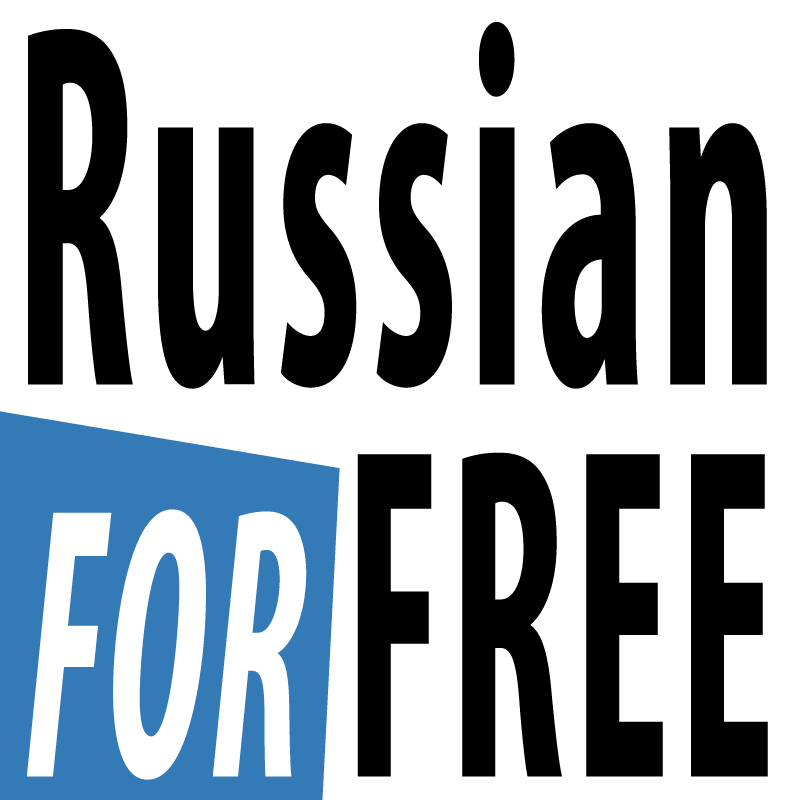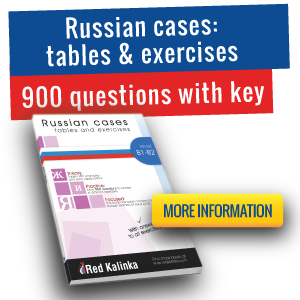Questions and Answers 11-15
Find an answer to your doubts about Russian grammar and vocabulary
Our language experts have gathered here the most common and interesting questions about Russian grammar and vocabulary. Discover the secrets of Russian verbs, case system and pronunciation.
11. Why do some nouns in plural end in "и" and some in "ы" in Russian?
First of all, when you form plural in Russian, you need to look at the ending of a word. Masculine and feminine nouns in Russian follow a very important spelling rule: we write "и" after к, г, х, ш, ж, ч, щ. After other consonants, we write "ы" in plural. For feminine words, this rule applies to the last consonant of the stem. Let's see the examples:
- Студент - Студенты. = A student - Students.
- Банк - Банки. = A bank - Banks.
- Машина - Машины. = A car - Cars.
- Студентка - Студентки. = A (female) student - (female) Students.
In addition to this, if a feminine word in singular ends with "ь" or "я", we have to change these letters for "и" in plural. For example:
- Фамилия - Фамилии. = A surname - Surnames.
- Ночь - Ночи. = A night- Nights.
Note that the neuter gender forms plural in a different way (it can have the endings: "а", "я", or "мена"). Also remember that we have a lot of exceptions when we form plural in Russian.
12. Why are "это" in Russian and "it" in English used differently?
In Russian we mostly use "это" to introduce an object ("This is..." or express our opinion about something ("It's good"). For example:
- Это моя семья. = This is (here is) my family.
- Я изучаю русский. Это хорошо. = I study Russian. This is (it's) good.
- Это интересный фильм. = This is an interesting movie.
In English “it” quite often introduces time, temperature or distances, but “это ” won't be used in these situations in Russian:
- На улице тепло. = It is warm outside.
- Сейчас 5 часов. = It is 5 o'clock now.
- От моего дома до магазина - 2 километра. = It is 2 km from my house to the shop.
Attention! In English the pronoun "it" is used to substitute things, while in Russian we use the pronouns "он, она, оно" in this meaning:
- У меня есть стол. Он большой. = I have a table. It is big (стол = masculine).
- Мой друг купил машину. Она очень красивая. = My friend bought a car. It is very beautiful (машина = feminine).
- Я часто хожу в кафе. Оно находится недалеко от моего дома. = I often go to the cafe. It is not far from my house (кафе = neuter).
13. What's the difference between "это" and "этот, эта, это, эти" in Russian?
“Это” will never change if it introduces something or somebody. It can be translated into English as "this is", "these are", "it is", etc.
We use "этот" (masculine), "эта" (feminine), "это" (neuter) and "эти" (plural) to point out a specific noun: this one in particular. The gender and number of this noun defines the choice of the form (этот, эта, это or эти). In English it will correspond to "this" or "these". Compare the examples:
- Это красивый дом. Этот дом - красивый. = This is a beautiful house (introduction). This house is beautiful (this one in particular).
- Это красная машина. Эта машина - красная. = This is a red car (introduction). This car is red (this one in particular).
- Это моё платье. Это платье - моё. = This is my dress (introduction). This dress is mine (this one in particular).
- Это мои друзья. Эти друзья - мои. = These are my friends (introduction). These friends are mine (these ones in particular).
13. How should I say "too" and "in addition" in Russian? What is the difference between "тоже", "ещё" and "также"?
We usually use “тоже” to express equality or inequality. The English translation will depend on the negative or positive meaning of a sentence. Let's see some examples:
- Я люблю чай. И мой брат тоже. = I like tea. And my brother too.
- Я не люблю кофе. И мой брат тоже. = I don't like coffee. And my brother doesn't like it either.
- Мой костюм красивый, и твой тоже. = My suit is beautiful, and yours (is beautiful) as well (too).
- Они не знают правильный ответ. И я тоже (не знаю). = Theу don't know the correct answer. I don't know it either. (Neither do I).
We usually use "ещё" or "а ещё" to add information. We can also use "также" or " а также" with the same meaning. For example:
- Я люблю чай, (а) ещё (я люблю) кофе. = I like tea, and also (I like) coffee.
- Мне нравится танцевать.(А) ещё я люблю петь. = I like dancing. And also, I like singing.
- Я была в Москве, а также в Санкт-Петербурге. = I've been to Moscow, and in St. Petersburg too.
Be careful! "Ещё" сan change its meaning to "yet" in a negative sentence. For example:
- Я ещё не был в Москве. = I haven't been to Moscow yet.
- Я не был в Москве, а ещё (также) (я не был) в Санкт-Петербурге. = I haven't been to Moscow, and to St.Petersburg either.
Compare "тоже" and "ещё/также":
- Я говорю по-русски и мой друг тоже. = I speak Russian and my friend too.
- Я говорю по-русски, (а) ещё/также по-испански и по-английски. = I speak Russian, and also Spanish and English.
- Я люблю чай и кофе тоже (люблю). = I like tea and coffee too.
- Я не люблю чай и кофе тоже (не люблю). = I don't like tea and coffee either.
Attention! In colloquial speech it is possible to use "тоже" even if you don't compare different things or people. In this case it should appear after the thing you add as an equal one:
15. What is the difference between "другой" and "разный"? How should I say "different" in Russian?
Both “разный” and “другой” can be translated as “different” in English. But anyways, these words differ in their meanings: "разный" refers to "various and diverse" and "другой" to "another, other or the other". Let's see some examples:
- Я люблю готовить разные блюда. = I like сooking different (=various) dishes.
- Я часто готовлю рис, поэтому сегодня я буду готовить другое блюдо. = I often cook rice, that is why today I'll cook a different (=another) dish.
- Красный и синий - это разные цвета. = Red and blue are different colours. (If you compare them, they are different).
- У меня есть красный шарф, но я хочу купить другой. = I have a red scarf, but I want to buy a different one. (In this case, it can mean: "I want to buy another red scarf, or maybe a different colour". It'll depend on a context).
Be careful! "Разный" points out the variety, while "другой" refers to something else (different from another, the other or other). Compare:
- Мне нужна другая ручка. Эта не пишет. = I need another (the other) pen. This one doesn't write. OR Мне нужны другие ручки. Эти не пишут. = I need other pens. These ones don't write.
- Мне нужны разные ручки, чтобы написать красивое письмо. = I need different (different types of) pens to write a beautiful letter.
- У меня есть разные шарфы, но я хочу купить другой/другие = I have different (various kinds) of scarfs, but I want to buy another one/other ones.
- У них разное мнение. = They have different opinion(s). (If we compare their opinions, they will be different between each other).
- У них другое мнение. = They have a different (=another) opinion. (If we compare their opinion to somebody's else, they will differ).

Learn Russian without spam
We want to help you learn Russian. Do you want to receive news from us? Subscribe to our newsletter. You will only receive one email a month with 100% news and 0% spam:
|
Contact us Site map Terms of use Privacy policy Shop - Russian school Copyright © www.russianforfree.com All rights reserved. |


